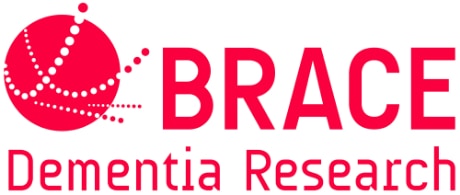Dr Catherine Pennington - University of Bristol
Pilot Project: 2016 - 2017
Metacognition: improving diagnostic tools to distinguish between Functional Cognitive Disorder and Mild Cognitive Impairment (Pilot Project)
See glossary at bottom of page for definition of underlined words.
Summary
Functional Cognitive Disorder (FCD) is a common condition whereby individuals believe they are in a state of cognitive decline but are not. It is very important to tell the difference between FCD and mild cognitive impairment (MCI) – a condition which may act as a precursor to Alzheimer’s disease. This research seeks to understand if FCD is caused by underestimate of one’s own cognitive abilities in a process called metacognition. A series of surveys and tests will be conducted on those with FCD and MCI to test for metacognition in both groups. The feedback from these tests has potential to be used as a new therapeutic tool for the treatment of FCD and dementia.
What do we already know?
Functional Cognitive Disorder (FCD) is a condition whereby individuals believe they are in the early stages of a cognitive disorder (such as dementia) but do not show any deficits on tests of memory and cognition. This condition is distressing and surprisingly common, with 30% of patients in the ReMemBr Group Memory Clinic receiving a final diagnosis of FCD. The condition can affect professional and personal life, and can also mean that cognitively healthy patients are erroneously enrolled into dementia clinical trials.
Telling the difference between mild cognitive impairment (MCI – a condition that may be temporary or act as a precursor to Alzheimer’s disease) from FCD is difficult, consumes significant NHS resources and the related diagnostic uncertainty can lead to heightened patient anxiety.
What is this project trying to find out?
Dr. Pennington believes that the primary deficit in FCD is a breakdown in metacognition, and this study aims to prove this and evaluate metacognitive assessments as a method of differentiating FCD from MCI. Metacognition is the process by which we judge our own cognitive abilities: estimating how well you scored in an exam, or deciding if you will remember an appointment or not (i.e. your level of confidence in your cognitive abilities). This research aims to discover whether FCD sufferers under-estimate their own cognition due to underlying psychological factors (e.g. anxiety, stress etc.), and whether real-time feedback on intellectual performance (i.e. test scores) has potential as a novel therapeutic tool.
How do they do this?
Dr. Pennington will obtain detailed demographic and neuropsychological profiles of patients with FCD, to explore possible underlying psychological factors in FCD onset, and patient surveys will be used to capture patient views on the current care pathway. Metacognition in individuals with FCD, matched healthy controls and MCI sufferers will be compared using two tests: one testing memory, and the other visual perception. Self-ratings of performance will be obtained before, during and after each task. Task scores and self-ratings will be used to determine values of metacognitive accuracy (how accurately a person judges their own performance) and bias (whether participants under or over-rate their abilities). At the end of the task participants will receive structured feedback on their task scores, then asked how they would now rate their ability to complete a similar task in the future. Theoretically feedback should improve metacognitive accuracy and reduce bias. This will allow evaluation of the potential utility of feedback as a therapeutic tool for FCD.
Why is it important?
This pilot study will yield a detailed neuropsychological profiling of those with FCD, which will give insights into metacognitive function in FCD and MCI and an insight into how metacognitive measures could be used to distinguish between these conditions. The study will also provide an evaluation of the utility of feedback strategies as a therapeutic strategy. Overall, this pilot data will be crucial to the development of metacognitive analyses to improve the diagnosis and treatment of FCD. Finally, a review of the patient experience will also be an important outcome, highlighting where it could be improved.
Glossary
Cognition – The mental process of knowing, including aspects such as awareness, perception, reasoning, and judgement.
Clinical trial – Trial to evaluate the effectiveness and safety of medications (or medical devices) by monitoring their effects on people.
Metacognition – Metacognition is the process by which we judge our own cognitive abilities (eg. how well you did in an exam)
Therapeutic tool – A tool which is designed to reduce or reverse the symptoms of a disease.
Neuropsychological profiles – The classification of patients into different groups based on their behavioural patterns.
Visual perception – The ability of the brain to make sense of what the eyes see.
Further information
Please click here for more information about the work of Dr Catherine Pennington.
Share this page




